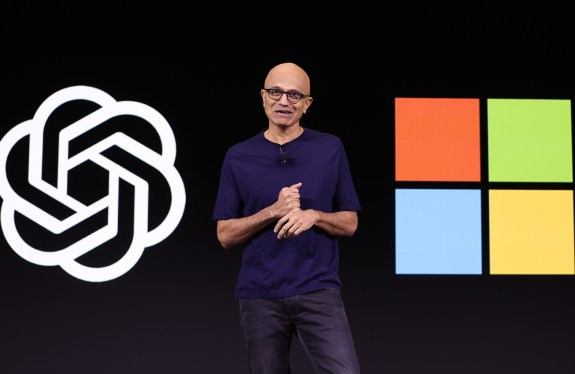OpenAI announced on Thursday that it has reached a non-binding agreement with Microsoft, its largest investor, on a revised partnership. This agreement would allow the startup to convert its for-profit arm into a public benefit corporation. The transition, which still requires approval from state regulators, could enable OpenAI to raise additional capital from investors and eventually become a public company.
In a blog post, OpenAI Board Chairman Bret Taylor stated that under the non-binding agreement with Microsoft, OpenAI’s nonprofit would continue to exist and retain control over the startup’s operations. The nonprofit would also obtain a stake in the new public benefit corporation worth upwards of one hundred billion dollars. Further terms of the deal were not disclosed.
Microsoft and OpenAI confirmed the next phase of their partnership in a joint statement, noting they had signed a non-binding memorandum of understanding. Such documents are not legally binding but aim to document each party’s expectations and intent. The companies added that they are actively working to finalize the contractual terms in a definitive agreement.
This development appears to conclude months of negotiations between OpenAI and Microsoft over the ChatGPT-maker’s transition plans. OpenAI is uniquely controlled by a nonprofit board, an unusual structure that allowed board members to fire CEO Sam Altman in 2023. Altman was reinstated days later, and many board members resigned, though the same governance structure remains today.
Under their current deal, Microsoft is entitled to preferred access to OpenAI’s technology and is the startup’s primary cloud services provider. However, ChatGPT has become a much larger business since Microsoft first invested in 2019, and OpenAI has reportedly sought to loosen the cloud provider’s control as part of these negotiations.
Over the last year, OpenAI has struck a series of deals to become less dependent on Microsoft. The company recently signed a contract to spend three hundred billion dollars with cloud provider Oracle over a five-year period starting in 2027. OpenAI has also partnered with the Japanese conglomerate SoftBank on its Stargate data center project.
Taylor says OpenAI and Microsoft will continue to work with the California and Delaware Attorneys General on the transition plan, implying the deal still needs regulatory approval before it can take effect. Representatives for those attorneys general did not immediately respond to requests for comment.
Tensions between OpenAI and Microsoft over these negotiations reportedly reached a boiling point in recent months. Microsoft allegedly wanted control of technology owned by Windsurf, an AI coding startup that OpenAI had planned to acquire earlier this year. OpenAI fought to keep the startup’s intellectual property independent. The deal ultimately fell through, and Windsurf’s founders were hired by Google while the rest of its staff was acquired by another startup, Cognition.
OpenAI’s for-profit transition is also a major point in Elon Musk’s lawsuit against the company. The suit accuses Sam Altman, Greg Brockman, and the company of abandoning its nonprofit mission. Lawyers representing Musk have tried to surface information related to Microsoft and OpenAI’s negotiations over the transition.
Musk also submitted an unsolicited ninety-seven billion dollar takeover bid for OpenAI earlier this year, which the startup’s board promptly rejected. Legal experts noted that Musk may have inadvertently raised the price of OpenAI’s nonprofit stake. Notably, the nonprofit’s stake in the new public benefit corporation, under this agreement, is larger than what Musk offered.
In recent months, nonprofits such as Encode and The Midas Project have taken issue with OpenAI’s for-profit transition. They argue that it threatens the startup’s mission to develop artificial general intelligence that benefits humanity. OpenAI has responded by sending subpoenas to some of these groups, claiming the nonprofits are funded by its competitors, namely Elon Musk and Meta CEO Mark Zuckerberg. Encode and The Midas Project deny these claims.

